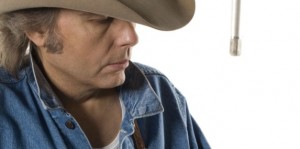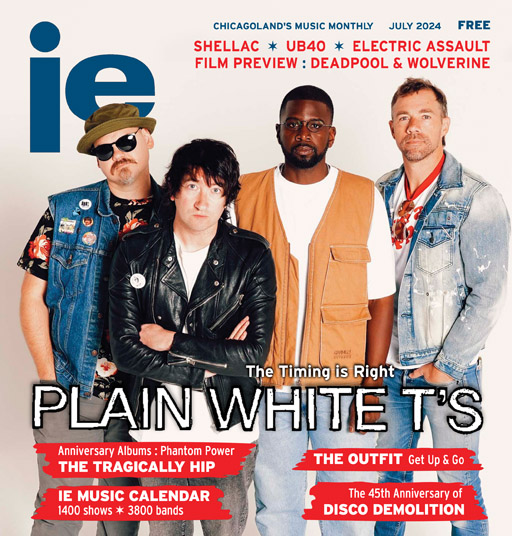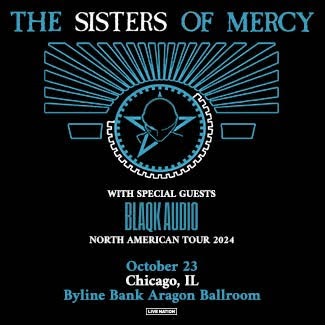Hello, My Name is Dwight
Illinois Entertainer: You’ve said you approach songwriting like a sculptor. Why?
Dwight Yoakam: I equated it to that, I guess, because rather than applying paint to something, like putting it on, it always feels to me like the song is there. From what little I know of sculpting, a sculptor kind of eyeballs and sees the form in this nondescript block and begins to chip away the excess from what he’s seen. The song is there if you can just get the excess matter away from it and let it kind of reveal itself. The American kind of post-’30s Method, if you will, school of acting is more akin to sculpting – chipping away to reveal what’s already there in the character. And I thought, “That’s kind of, [for] me, how songwriting always worked. And also, I’ve described it as listening to the voice that’s kind of behind me in the room. Just out of eyesight, within earshot over my shoulder somewhere, I hear these thoughts of lyrics and melodic ideas that I kind of, I cock my head bird-style. I hear and listen and kind of go, “Huh.” And it’s also like chasing wisps of smoke around the room. It’s a wonderful mystery and I like it to remain as magical for me as hopefully it is when I hear other people’s songs and feel like it’s something familiar yet unique to the moment.
IE: Before releasing 3 Pears last year, your last batch of original tunes came in 2005 on Blame The Vain. Why the long break?
DY: I was writing throughout the entire span of time. I was creating material. Some of those songs that I wrote during that time . . . for instance, the opening track, “Take Hold Of My Hand,” only took 20 years and three hours to write. I had started that song in, I think, ’91. Robert Ritchie, known to the world as Kid Rock, called and said, “Let’s get together and do this! Let’s try and do something.” So I drove over to his place here in L.A. one day and I took with me this song that I started writing years before and I said, “Hey, take a listen to this. I started this song and never finished it.” Played the opening hook and he jumped up at his computer, fired up a cigar, and was running in and out, smoking out on the balcony and coming back in typing madly going, “Let’s write this!” With his enthusiasm and energy, that one was finished only 20 years later. The reason it was seven years is just the logistics of who am I going to record for; when do we decide to release the album?
IE: If there is a theme running through 3 Pears, what is it?
DY: Joy. I hope. This was one of the most joyful experiences I had in recording. I don’t think we ever left the studio without feeling great joy and satisfaction. Whether we thought the song was done or not done or there was other work to do . . . [there] was even joy about the anticipation of coming back to it the next day. For me, I hope that people listening to it experience joy.
IE: Looking at the album title and cover, it’s obvious 3 Pears isn’t your tribute to still life.
DY: It’s my tongue-in-cheek to the Beatles because I wrote it after watching the documentary [Martin] Scorsese did on George Harrison. There’s a brief moment where George is talking about John [Lennon] and he being slipped LSD one night in a club in London . . . and they cut to John and there’s a shot of him in the ’70s where he’s wearing four different pairs of glasses, but he had three big pairs of like movie star, Persol wrap-around sunglasses on and I looked and laughed and said, “Aw, there you are, huh, John?” How sad that he left so early and I said out loud, “Three pairs of glasses.” And I walked across the kitchen to get a scratch pad and by the time I got over to the scratch pad my girlfriend was watching, she said, “You were actually, you had sung that line to yourself and had, [he sings] three pairs of glasses, three pairs of shades, three pairs of other things all there in spades.” And I wrote that down.
IE: You tapped Beck to co-produce “A Heart Like Mine” and “Missing Heart.” What did he bring to the sessions?
DY: He’s there as, I think, one of the best audiences that an artist could have. An audience of one. Jeremy Kagan, a terrifically talented film director, directed me in a [TV] movie titled “Roswell,” and I said to him after we finished this scene, I said, “Wow Jeremy, it’s so great working with you ’cause I feel almost in a musical sense that I’m being conducted. I equate my experience with you to music.” He said, “Thank you; I love that analogy.” He said, “I feel my job for you is to be the best audience of one that I can be in that moment.” I thought, “That’s brilliantly put.” That’s what great directors do and that’s what great musical producers do. They serve as the best audience of one that you can have. And Beck is extremely capable that way. He genuinely loves music and loves [those] that create it and is an enabler to that in the best sense.
IE: You’ve always seemed like one of the few artists working without any constraints.
DY: The first conversation I ever had with [former Warner Bros. Records President] Lenny Waronker in 1986 after we did the record release party at the Roxy, he said to me, “You don’t know me other than meeting me last night and I only know you through your record and what we signed and how this has turned out now, but watching you, I kept thinking I need to tell you,” and he said, “If anybody here or anybody else along your journey ever tells you to do something that’s against your instinct, don’t listen. Do what you hear your inner voice say.” And I thought that was the best advice that I could ever be given by the president of a record label. I’m lucky that my career was with a company like that and I’m back there with this album.
IE: It seems you’re in the running for Country’s Hottest Bachelor in Country Weekly. Does this make you feel like a piece of meat?
DY: [Laughing] I’m flattered someone thinks I’m eligible in any way.
IE: You’re not going to vote for yourself, is that what you’re saying?
DY: No, I don’t really participate in that side of entertainment – the voting lists. I’m just trying to perform the best I can for the audience I’m in front of that night and create music that’s worth listening to now and hopefully later. All you can hope for, I guess, is what [Winston] Churchill said, right? About God protecting babies, drunks, and the United States of America. As a songwriter, that’s all you can hope for is that you’re being guided by something that watches out for you.
Dwight Yoakam appears at Prairie Capital Convention Center (1 Convention Center Plaza) in Springfield on April 7 and Paramount Theatre (23 E. Galena Blvd.) in Aurora on April 10.











